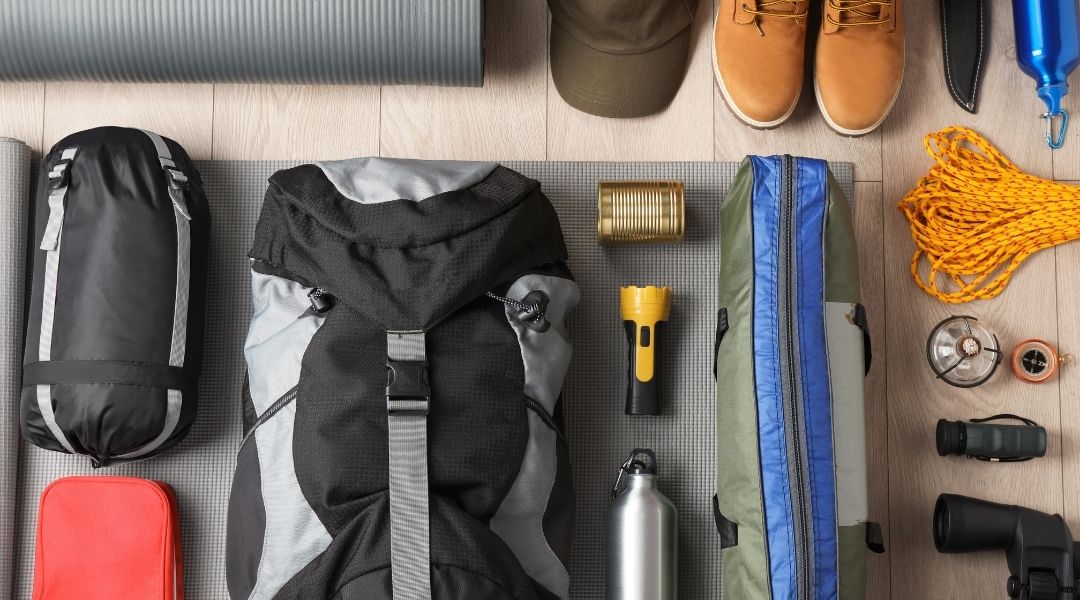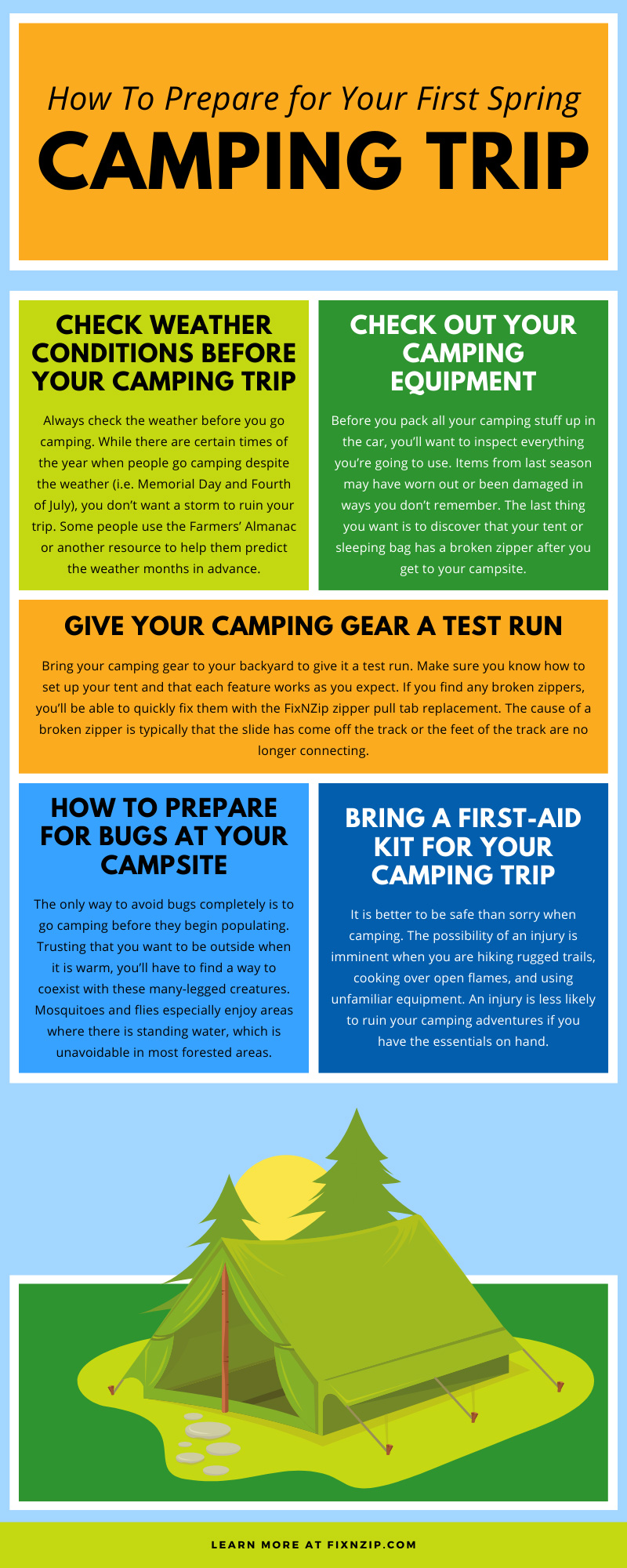

As the weather begins to warm up, you might start to crave the great outdoors again. Spending time in the backyard and going on hikes is one way to enjoy nature, but if you really want to try connecting with the natural world, plan a camping trip. Figuring out how to prepare for your first spring camping trip may seem like a great undertaking if you’ve never slept beneath the stars before.
Some people prefer to camp alone, while many enjoy taking a group of friends or family members. Camping is a nostalgic pastime for many people, yet some have never had the chance. Whether you have some experience or are completely new to this hobby, let these tips and tricks guide you when making your camping checklist.
Always check the weather before you go camping. While there are certain times of the year when people go camping despite the weather (i.e. Memorial Day and Fourth of July), you don’t want a storm to ruin your trip. Some people use the Farmers’ Almanac or another resource to help them predict the weather months in advance. Though it is not always accurate, you can use an asset like this to help you plan a camping trip. Regardless of what is predicted, you will still want to check a weather app or the news for the days that you will be outdoors so that you can pack accordingly.
You could run into cold weather at any time of the year. You should pack for the weather you are expecting—but be prepared for anything. Weather can change in an instant. A bright and shiny weekend can turn into thunderstorms—or even snow—but you don’t have to let that ruin your fun. Bring extra layers so that you won’t get cold.
Before you pack all your camping stuff up in the car, you’ll want to inspect everything you’re going to use. Items from last season may have worn out or been damaged in ways you don’t remember. The last thing you want is to discover that your tent or sleeping bag has a broken zipper after you get to your campsite.
Bring your camping gear to your backyard to give it a test run. Make sure you know how to set up your tent and that each feature works as you expect. If you find any broken zippers, you’ll be able to quickly fix them with the FixNZip zipper pull tab replacement. The cause of a broken zipper is typically that the slide has come off the track or the feet of the track are no longer connecting.
The only way to avoid bugs completely is to go camping before they begin populating. Trusting that you want to be outside when it is warm, you’ll have to find a way to coexist with these many-legged creatures. Mosquitoes and flies especially enjoy areas where there is standing water, which is unavoidable in most forested areas. The best ways to keep bugs away include:
It is better to be safe than sorry when camping. The possibility of an injury is imminent when you are hiking rugged trails, cooking over open flames, and using unfamiliar equipment. An injury is less likely to ruin your camping adventures if you have the essentials on hand. A well-stocked first-aid kit includes:
Whether it is due to inclement weather while you’re camping or the general dampness that comes with spring, you are likely to get wet at some point during your trip. Your goal should be to stay as dry as possible, so you do not get sick. Though spring is the beginning of the warm months, it can bring on cold nights, especially when it rains.
You can prepare for a potentially wet environment. Leave your wool sweaters at home and choose cotton blends instead. Wool absorbs water and does not dry as easily. You can also bring extra clothes to layer, as well as towels and blankets. A tarp is a versatile item that can be used to protect the bottom of your tent from mud, or to create a shelter. You may also want to bring waterproof matches.
For many people, one of the most memorable parts of camping is the food. Homecooked morning meals and hearty dinners are the pillars of fireside cooking. Likely, there won’t be a restaurant or grocery store nearby, so you must prepare ahead of time if you want to eat. Essential tools that you will need to cook a delicious meal on the fire include:
The type of food you get to eat while you’re camping depends on what you bring. No one is foraging for food in their state parks or at the local lake campground. Grab a couple coolers and fill them with eggs, hot dogs, bacon, cheese, and everything else you’ll need to make incredible meals. Plan out what you want to make each day so that you don’t over or under-pack. Bring snacks that you know will keep you full between meals—i.e. trail mix, beef jerky, and granola—so you won’t lose your energy or have to leave the campground for additional food.
Experienced campers who visit the same parks each year know that their favorite paths and trails change with the seasons. Weather causes trees to fall and new foliage to grow in places that could make last season’s hike unrecognizable. With the way rivers swell and recede, you might have to take an entirely different route to get to that waterfall you found last time you visited a campsite. If you can, rely on maps and stay on marked trails so that you don’t get lost.
When it comes to a successful camping trip, your greatest asset is your plan. If you’re trying to figure out how to prepare for your first spring camping trip, make a check list of all the items you need. Enlist your friends or family (i.e. your camping compadres) to help you list out and assemble everything you need for the ultimate spring camping adventure.

